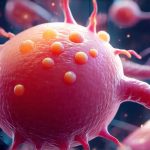The sudden reduction or elimination of sugar from the diet can trigger a surprisingly wide range of physical and psychological symptoms, often collectively referred to as ‘sugar withdrawal.’ These aren’t simply about willpower or craving; they represent a complex physiological response that goes far beyond what many people realize. For decades, we’ve focused heavily on the addictive nature of sugar itself, comparing it to drugs like cocaine in terms of its impact on brain reward pathways. While this is demonstrably true and explains some aspects of withdrawal, it’s increasingly clear that the gut microbiome – the vast ecosystem of bacteria residing within our digestive system – plays a profoundly influential role in both the experience and severity of these symptoms. Understanding gut inflammation isn’t just about making dietary changes easier; it’s about recognizing how deeply interconnected our mental and physical health are, and appreciating the power of a healthy gut.
Conventional approaches to sugar withdrawal often concentrate on strategies like cold turkey elimination, substituting sugary foods with artificial sweeteners or other “healthier” options, and relying heavily on sheer determination. However, these methods frequently fall short because they don’t address the underlying biological processes happening within the gut. The microbiome adapts to a high-sugar diet over time, becoming dependent on it as a food source for certain bacterial populations. When sugar is abruptly removed, these bacteria struggle, leading to dysbiosis – an imbalance in gut flora. This imbalance then triggers a cascade of effects that contribute significantly to withdrawal symptoms like headaches, fatigue, irritability, and even anxiety. It’s not just the brain craving dopamine; it’s also the gut reacting to a sudden shift in its ecosystem.
The Gut-Brain Axis & Sugar Dependency
The gut microbiome isn’t an isolated entity; it’s intimately connected to the brain via what is known as the ‘gut-brain axis.’ This bidirectional communication highway involves neural, hormonal, and immunological pathways. Bacteria within the gut produce neurotransmitters – chemical messengers that influence mood, sleep, and cognitive function – including serotonin (often called the “happy hormone”), dopamine, and GABA. A diet high in sugar can disrupt this delicate balance. – Specific bacterial strains thrive on simple sugars, often outcompeting beneficial bacteria. – This leads to reduced diversity within the microbiome, weakening its overall resilience. – An overgrowth of certain sugar-loving bacteria produces metabolites that can negatively impact brain function and contribute to inflammation. When sugar is removed, these bacteria struggle, leading to a shift in microbial populations and a corresponding disruption in neurotransmitter production, contributing directly to mood swings and anxiety often experienced during withdrawal. This isn’t simply psychological; it’s a physiological response driven by changes happening within the gut.
Furthermore, inflammation is a key component of sugar withdrawal, and the gut microbiome plays a crucial role here. A high-sugar diet promotes inflammation throughout the body, including in the gut itself. When sugar intake drops, the inflammatory response doesn’t immediately disappear; it can actually intensify as the gut attempts to rebalance. This contributes to symptoms like headaches, muscle aches, and fatigue. The gut barrier – the lining of your intestines – also becomes compromised with a high-sugar diet, leading to ‘leaky gut’ syndrome where undigested food particles and toxins enter the bloodstream, further fueling inflammation and exacerbating withdrawal symptoms. A healthy microbiome strengthens the gut barrier, making it more resilient and reducing systemic inflammation. Gut pain can also be a contributing factor to this discomfort.
Rebuilding Gut Flora During Sugar Withdrawal
Successfully navigating sugar withdrawal isn’t just about resisting cravings; it’s about actively supporting your gut microbiome during this transition. This involves strategies designed to restore microbial balance and reduce inflammation. – Incorporate prebiotic foods into your diet. These are types of fiber that feed beneficial bacteria in the gut, promoting their growth and diversity. Examples include garlic, onions, leeks, asparagus, bananas (in moderation), and oats. – Consume probiotic-rich foods like yogurt (unsweetened), kefir, sauerkraut, kimchi, and kombucha. These introduce live microorganisms into your gut, helping to repopulate beneficial bacterial strains. Be mindful that probiotic effects are often strain-specific, so variety is key. – Focus on a whole-foods diet rich in fiber, healthy fats, and lean protein. This provides the nutrients needed for both you and your microbiome to thrive.
The timing of these interventions is also important. Starting prebiotic and probiotic intake before significantly reducing sugar consumption can help prepare the gut for the change, lessening the severity of withdrawal symptoms. Continuing these practices during and after withdrawal supports long-term microbial balance and reduces the likelihood of relapse. It’s essential to remember that rebuilding a healthy microbiome takes time – it’s not an overnight process. Patience and consistency are key. Additionally, managing stress levels is vital as chronic stress negatively impacts gut health and can exacerbate withdrawal symptoms. Practices like meditation, yoga, or spending time in nature can help mitigate the impact of stress on your gut reactions.
Addressing Specific Withdrawal Symptoms Through Gut Support
Sugar withdrawal manifests differently for everyone, but some common symptoms are more directly linked to gut imbalances than others. Headaches often arise from inflammation and dehydration, both of which can be influenced by gut health. Ensuring adequate hydration and consuming anti-inflammatory foods like berries, fatty fish, and leafy greens can help alleviate headache severity. Similarly, fatigue is frequently associated with disrupted sleep patterns and energy production, processes heavily influenced by the microbiome. Supporting a healthy gut can improve sleep quality and enhance energy levels. – Consider supplementing with magnesium, which plays a role in both muscle relaxation and neurotransmitter function. – Prioritize regular physical activity to boost circulation and reduce stress. Irritability and mood swings are often linked to fluctuations in neurotransmitters produced by the gut microbiome. Incorporating foods rich in tryptophan (the precursor to serotonin) like turkey, nuts, and seeds can help support serotonin production. Emotional triggers may also play a role in these mood swings.
The Role of Fiber in Sugar Withdrawal Success
Fiber isn’t just about digestive regularity; it’s a cornerstone of gut health and a powerful tool for managing sugar withdrawal. Different types of fiber impact the microbiome in different ways. – Soluble fiber dissolves in water, forming a gel-like substance that slows digestion and helps regulate blood sugar levels, reducing cravings and preventing spikes and crashes. Sources include oats, beans, apples, and citrus fruits. – Insoluble fiber adds bulk to stool, promoting regularity and helping to remove toxins from the body. Sources include whole grains, vegetables, and nuts. A diet rich in both soluble and insoluble fiber supports a diverse and balanced microbiome. It also helps to reduce inflammation and improve gut barrier function.
Crucially, when reducing sugar intake, increasing fiber simultaneously can significantly mitigate withdrawal symptoms. The fiber slows down the absorption of any remaining sugars, preventing rapid fluctuations in blood glucose levels. It also provides food for beneficial bacteria, helping them thrive and outcompete sugar-loving strains. However, it’s important to increase fiber intake gradually to avoid bloating and digestive discomfort. Starting slowly and increasing your intake over time allows your gut microbiome to adapt without overwhelming the system.
Beyond Diet: Lifestyle Factors & Gut Health
While diet is paramount, other lifestyle factors significantly impact gut health and can influence sugar withdrawal symptoms. Stress management is crucial, as chronic stress disrupts the gut-brain axis and weakens the immune system. Techniques like meditation, deep breathing exercises, yoga, or spending time in nature can help mitigate the negative effects of stress on your gut. – Regular exercise promotes circulation, reduces inflammation, and supports a healthy microbiome. Even moderate exercise can have significant benefits. – Adequate sleep is essential for both physical and mental recovery. Lack of sleep disrupts hormonal balance and negatively impacts gut health. Aim for 7-9 hours of quality sleep per night.
Finally, consider the impact of medications, particularly antibiotics. Antibiotics kill bacteria indiscriminately, including beneficial strains in your gut. If you’ve recently taken antibiotics, supporting your microbiome with probiotics and prebiotic foods is especially important. Remember that sugar withdrawal isn’t a linear process; there will be ups and downs. Focusing on holistic gut health – through diet, lifestyle modifications, and stress management – provides the strongest foundation for success and allows you to navigate this transition with greater ease and resilience. It’s about building a symbiotic relationship with your microbiome, recognizing its power, and nurturing it for long-term well-being. Gut inflammation can also play a significant role in overall health during this process. Also consider the impact of helicobacter pylori on gut health.


















